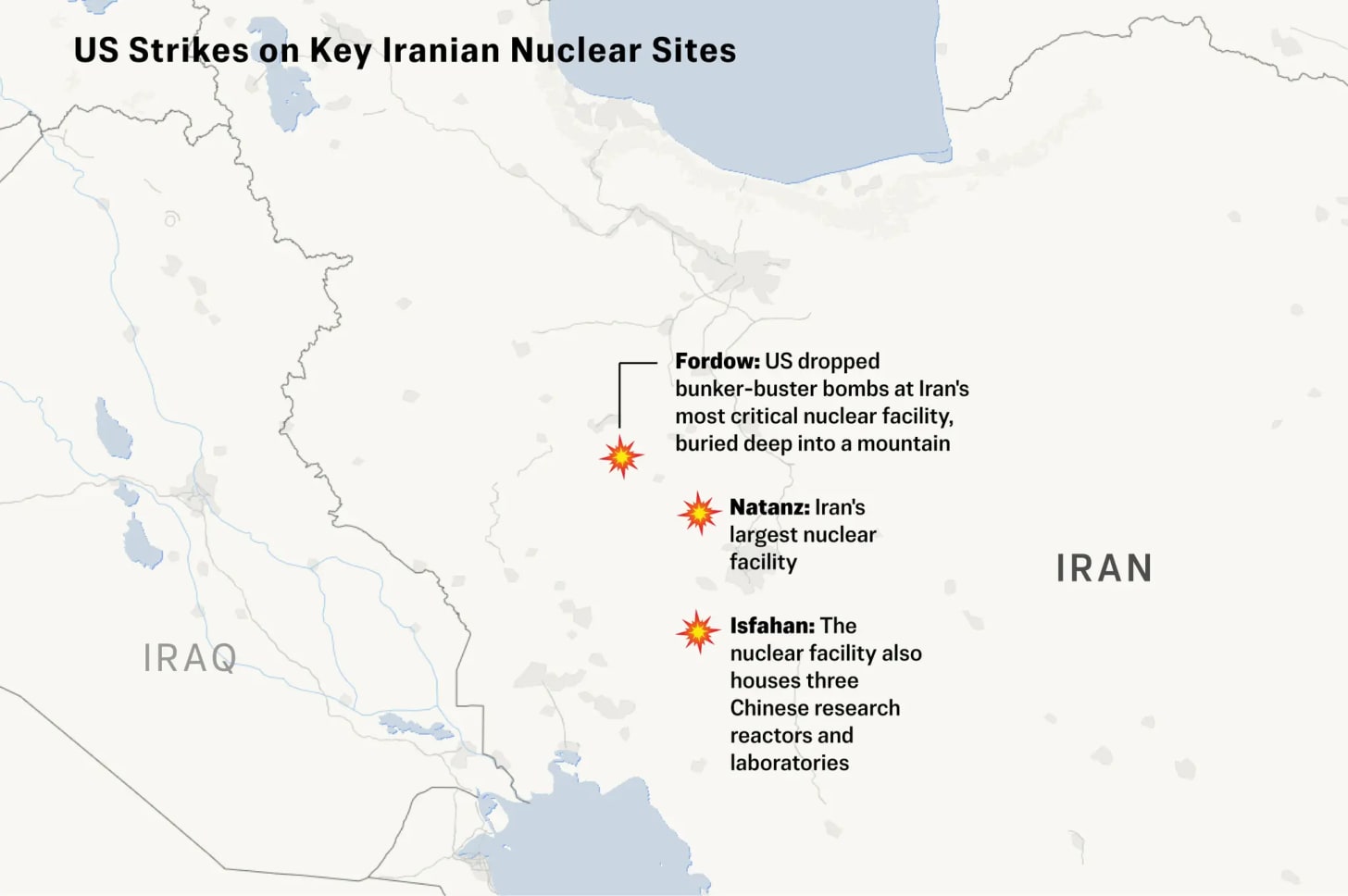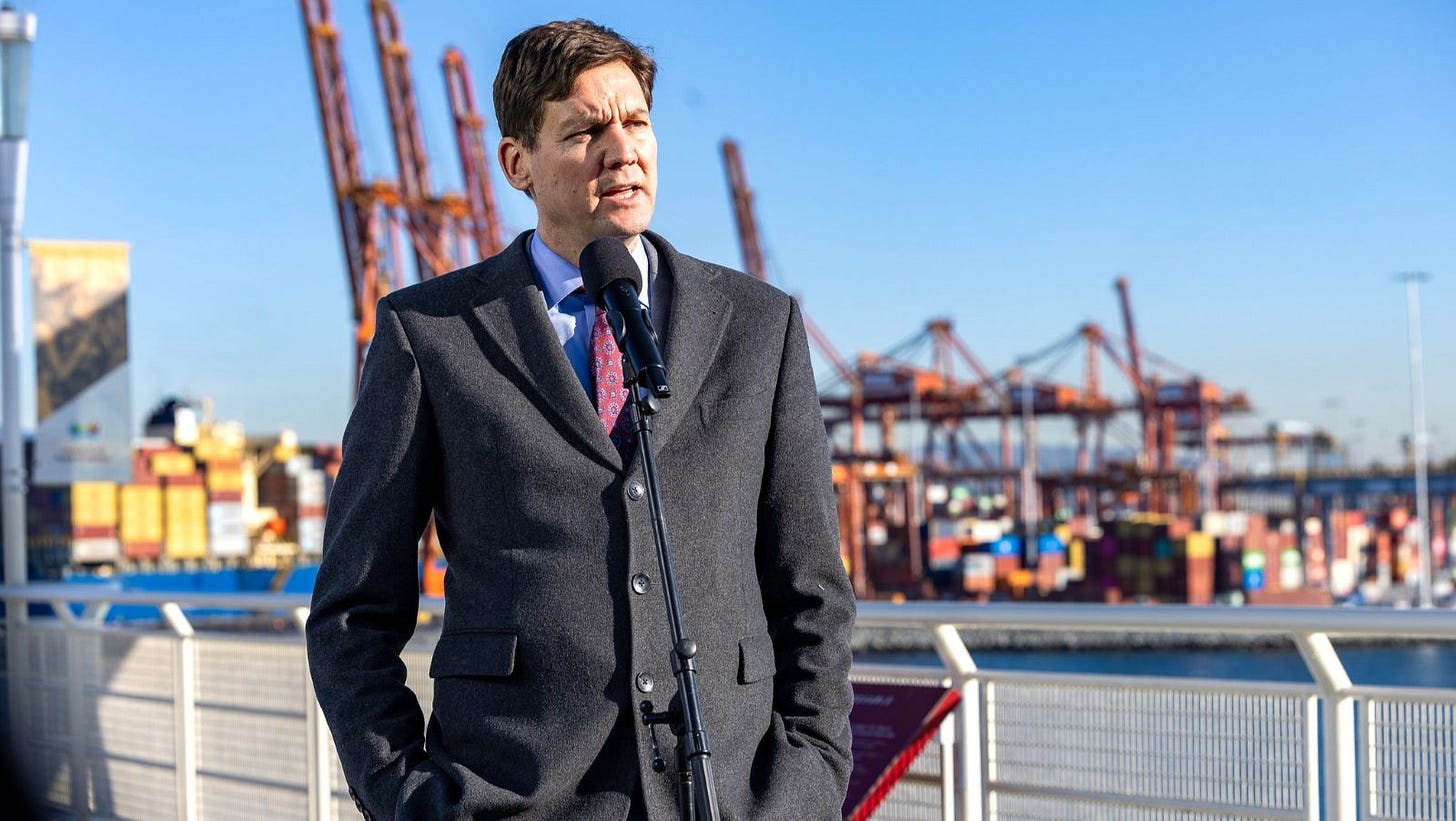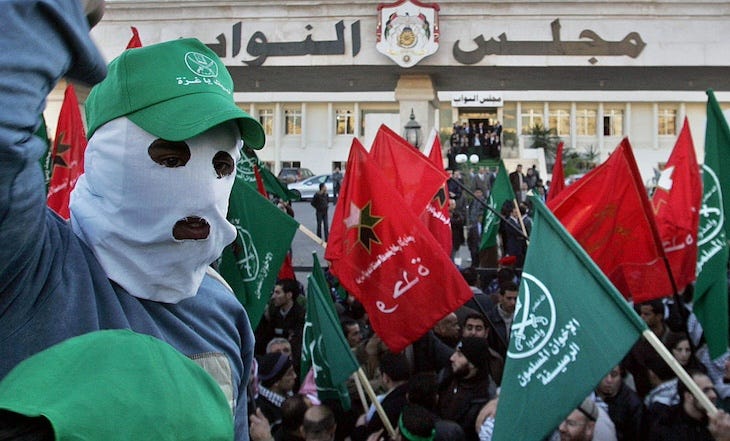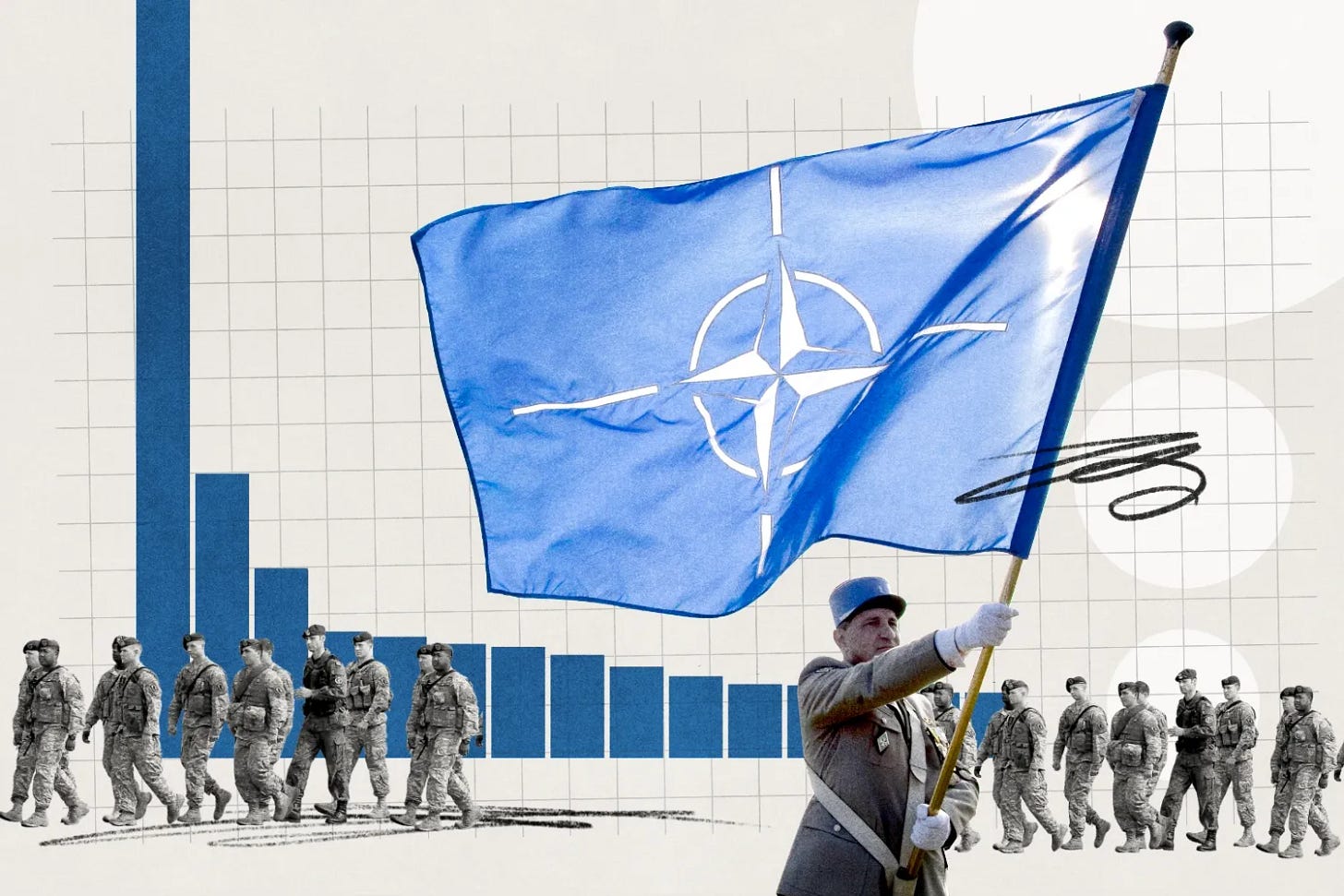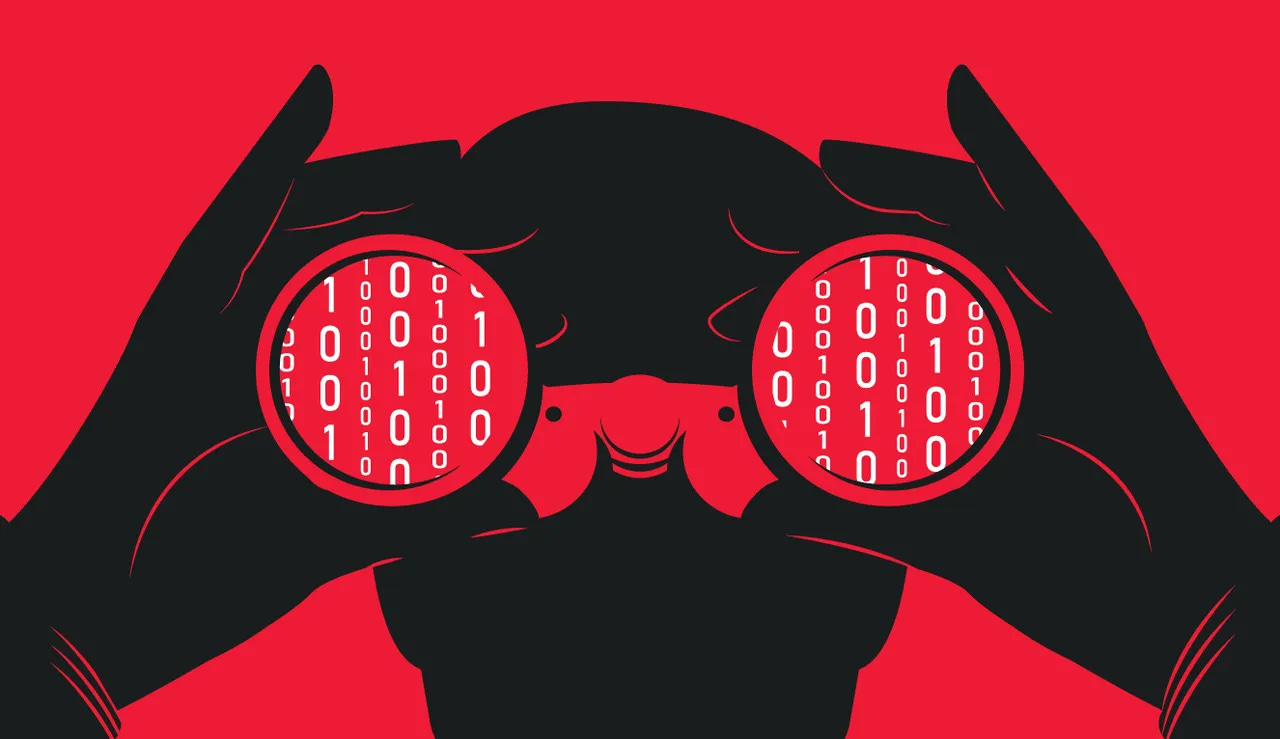Good morning, it’s Monday, June 23rd. In today’s news, US strikes Iranian nuclear facilities—key facts explained, BC Premier allows a controversial ferries’ contract to China, Canada’s alarming silence and lack of action on the rise of political Islam, NATO countries agree to increase defence spending to 5%, and much more.
First time reading the daily blend? Sign up here.
US Strikes Iranian Nuclear Facilities—Key Facts Explained
As of June 22, 2025, US–Iran relations have entered a dangerous new phase following several military strikes over Iran’s nuclear ambitions. Here's a breakdown of the key developments:
US Military Strikes on Iran
On June 21, 2025, the US conducted airstrikes, dubbed "Operation Midnight Hammer," targeting three key Iranian nuclear facilities—Fordow, Natanz, and Isfahan. President Donald Trump announced the strikes, claiming they "completely obliterated" Iran's nuclear enrichment capabilities, though US officials and the International Atomic Energy Agency (IAEA) note that damage assessments are ongoing and no immediate radioactive contamination has been detected. The strikes involved bunker-buster bombs, with B-2 stealth bombers and Tomahawk cruise missiles deployed, marking a significant escalation in US involvement in the Israel-Iran conflict.
Context and US Involvement
The US actions followed Israel's ongoing military campaign against Iran, which intensified after back-and-forth strikes. Israel sought US support due to its inability to destroy deeply fortified sites like Fordow without American heavy ordnance. The strikes align with Trump's stated policy that Iran "cannot have a nuclear weapon," a position he reiterated on social media, warning of "far greater" force if Iran retaliates. The US coordinated with Israel, with Trump and Israeli Prime Minister Benjamin Netanyahu discussing the operation post-strike.
Iranian Response
Iran condemned the US strikes as a violation of international law and the Nuclear Non-Proliferation Treaty (NPT). Foreign Minister Abbas Araghchi called the attacks "outrageous" and warned of "everlasting consequences," announcing plans to meet Russian President Vladimir Putin in Moscow for consultations, highlighting the Iran-Russia strategic partnership. Iranian President Masoud Pezeshkian stated the US "must receive a response for their aggression," though specifics on retaliation remain unclear. Iran reportedly moved most of its highly enriched uranium from Fordow before the strikes, suggesting preparedness. Protests in Iran, including anti-US and anti-Israel demonstrations, have been reported.
International Reactions
Global responses are mixed. Allies like France, Germany, and the UK urged restraint and diplomacy, with France explicitly noting non-involvement. Russia and China condemned the strikes as violations of international law. The UN Security Council saw Iran's ambassador denounce the US, while the US envoy defended the strikes as necessary to curb Iran's nuclear ambitions. The IAEA plans an emergency meeting to assess the situation. Saudi Arabia expressed "great concern," and regional actors like Hezbollah and the Houthis have not signaled immediate retaliation.
US Domestic and Political Context
The Trump administration, including Vice President JD Vance, Secretary of State Marco Rubio, and Defense Secretary Pete Hegseth, has signaled openness to renewed talks with Iran to avoid prolonged conflict, with Rubio emphasizing diplomatic solutions on June 22. However, Democratic lawmakers, such as Senators Jeanne Shaheen and Jack Reed, criticized the strikes for lacking congressional authorization and risking escalation. Republican support, including from Senator Ted Cruz, contrasts with dissent from figures like Congressman Thomas Massie, who called the strikes unconstitutional. The Council on American-Islamic Relations (CAIR) labeled the strikes an "illegal act of war."
Potential Implications
Analysts suggest Iran's response could range from military retaliation against US bases in the Gulf, covert actions, or attempts to disrupt the Strait of Hormuz, a critical oil route. Such actions could spike oil prices significantly. While the US aims to prevent Iran from developing nuclear weapons, some experts argue the strikes may delay but not eliminate Iran's nuclear program, potentially pushing it toward defiance or covert nuclear pursuits. The conflict risks broader regional instability, though the US and its allies express confidence in managing fallout.
Historical Context
US-Iran tensions have deep roots, notably since the 1979 US Embassy takeover in Tehran, followed by decades of sanctions, Iran's designation as a "state sponsor of terrorism," and the US withdrawal from the 2015 Iran nuclear deal under Trump’s first term. Recent failed nuclear talks and Iran's alignment with Russia further complicate relations.
The situation remains fluid, with diplomacy urged by many but overshadowed by the risk of Iranian retaliation and further escalation.
Sources: Fox News, Times of India, NBC News, The Tribune, CBS News, The Epoch Times, Axios, The New York Times, Air & Space Forces, The War Zone
National Security for Sale: B.C. Ferries’ China Contract Sparks Outrage
Canada’s dependence on authoritarian regimes has crossed a dangerous threshold. B.C. Premier David Eby’s refusal to stop BC Ferries from awarding a major shipbuilding contract to China Merchants Industry Weihai—an arm of the Chinese Communist Party—signals more than just economic short-sightedness. It’s a reckless geopolitical gamble that could jeopardize Canada’s national security for decades.
This is no ordinary contract. The shipyard selected is part of China Merchants Group, a state-owned behemoth deeply embedded in Beijing’s Belt and Road Initiative and military-civil fusion strategy. That means Canadian taxpayer dollars are being funneled into a company actively aiding the expansion of the People’s Liberation Army Navy.
The fallout has been swift. Transport Minister Chrystia Freeland issued a scathing letter demanding confirmation that no federal funds would support the acquisition. She noted the federal government’s annual $37.8 million subsidy to BC Ferries, along with pandemic bailouts and a $75-million loan for emissions-reducing vessels. Ottawa wasn’t even consulted. Freeland rightly warned of cyber risks, military entanglements, and economic blackmail—risks that China has weaponized before, including during Canada’s failed vaccine deal with CanSino Biologics.
Meanwhile, Eby’s government quietly withheld Freeland’s letter for nearly a week, only releasing it late on a Friday night after pressure from MPs. The outrage is bipartisan. BC Conservatives, labour groups, and maritime industry advocates all agree: this decision is a betrayal of Canadian workers and a slap in the face to the domestic shipbuilding industry. It’s also part of a larger pattern—British Columbia remains the only jurisdiction in North America with a formal Belt and Road agreement, a pact forged under Christy Clark and deepened by John Horgan.
To make matters worse, new findings from the Jamestown Foundation show China’s Belt and Road operations are deeply intertwined with organized crime networks like Hongmen—linked to the CCP’s global influence campaigns and active in Canadian cities like Toronto.
This isn’t just poor judgment. It’s a systemic failure to recognize the strategic threat posed by China’s economic and political ambitions. Source.
The Brotherhood Within: Canada’s Deafening Silence on Political Islam
Canada urgently needs to confront a topic its political class seems determined to ignore: the influence of the Muslim Brotherhood within our borders. What was once treated as a fringe concern by security analysts is now a glaring red flag that our leadership refuses to acknowledge, let alone address.
The Muslim Brotherhood, founded in Egypt a century ago, is not simply a religious movement. It is an ideologically totalitarian force with a stated goal of global Islamic domination. Its vision inspired Hamas, and its rhetoric fuels the same extremism that has destabilized regions across the Middle East. Nations such as Egypt, Saudi Arabia, and the UAE classify the Brotherhood as a terrorist organization. Canada, however, continues to provide it platforms and legitimacy.
One of the clearest examples came on June 6, when Prime Minister Mark Carney chose to deliver a speech at the Muslim Association of Canada (MAC), a self-declared Muslim Brotherhood legacy group. This is the same group investigated by the CRA in 2021 for links to Hamas networks. The same group cited by terrorism expert Tom Quiggin and exposed in international reports for its ideological proximity to political Islam’s most radical agendas.
Rather than confront these concerns, Canada’s political and media establishment dismisses them under the umbrella of “Islamophobia,” chilling any attempt at honest conversation. But this isn’t about religion—it’s about ideology. As Europe investigates Brotherhood infiltration and the U.S. Congress reopens debate about formally designating the Brotherhood as a terrorist organization, Canada remains paralyzed by political correctness.
This isn’t just a security issue—it’s a test of our national sanity. If we can’t even name the ideological forces operating within our institutions, we’ve already lost the battle for a secular Canada.
The Brotherhood isn’t hiding. Its tactics are gradual, systemic, and legal. But its goals are explicit. As one Brotherhood founder put it: “It is the nature of Islam to dominate, not be dominated.” That quote should be enough to prompt national outrage—and yet we remain silent.
Canada doesn’t need to be xenophobic or paranoid. But it must be honest. And that honesty begins with one demand: a national-level investigation into the Muslim Brotherhood’s presence in Canada. Source.
NATO Countries Agree to Increase Defence Spending to 5%
NATO has reached a draft agreement to increase defence and security-related spending to 5% of GDP by 2035, ahead of this week’s summit in The Hague. The final text softens the language to appease Spain, which currently spends only 1.24% and opposed a binding commitment. The new target—driven by US President Donald Trump and NATO chief Mark Rutte—combines 3.5% in core defence spending with 1.5% for related infrastructure and cyber investments. The 5% goal will be reviewed in 2029 and is seen as a response to mounting threats from Russia and growing calls for Europe to shoulder more of its own defence. More
From $36 Million to $7 Billion: Ottawa’s First Nations Payouts Explode Under Liberal Rule
Since 2015, Ottawa has spent nearly $18 billion settling so-called "specific claims" from First Nations—over $7 billion of that in just the 2024–25 fiscal year alone. For comparison, the government spent only $36 million on 15 claims in 2015–16. A new Fraser Institute study highlights how this dramatic surge in payouts—nearly 200 times higher—coincides with Liberal policy changes that shifted the process from litigation to negotiation.
One major driver: “cows and plows” claims—agricultural grievances tied to 19th-century treaties—now account for more than half of all settlement spending. Critics argue the claims process, where Ottawa acts as both judge and defendant, creates a conflict of interest and is spiraling out of control. The study calls for a strict filing deadline and a wind-down of the program, warning that without reform, the system risks turning into a permanent, unaccountable money pipeline rather than a path to justice. More
16 Billion Passwords Leaked Across Apple, Google, and More
Cybernews recently reported that 16 billion passwords were exposed in what appeared to be a massive data breach. However, the breach wasn't from one source—instead, it came from 30 separate datasets compiled over time, many of which likely contain duplicates and old data. No single major company like Facebook, Google, or Apple was directly breached, despite sensational headlines. The leak mostly includes data from infostealer malware, credential stuffing, and repackaged leaks. Still, experts warn that individuals can face serious risks from such breaches, including phishing, identity theft, and emotional stress. More
Russia's Deployment of Nearly 700,000 Troops Signals Long-term War Plan -
'They are preparing for a protracted war, a war of attrition,' says Ukraine’s commander-in-chief. More
ISIS Suicide Bomber Attack on Church in Syria Kills at Least 22 People During Mass - More
Activists From Palestine Action Have Cost the UK Government and Firms Making Equipment for the British Military as Much as £55 Million - In a five-year campaign Palestine Action has conducted 356 attacks on sites across the UK, culminating in a raid on RAF Brize Norton last week in which two Voyager aircraft were damaged. More
Colombian Army Says 57 Soldiers Kidnapped by Civilians Under Pressure from Revolutionary Forces (FARC) - More
Amazon Warns AI Will Slash Jobs as Corporate Workers Get Relocation Ultimatum
Amazon is turning up the pressure on its corporate workforce as CEO Andy Jassy pushes to make the company “operate like the world’s largest startup.” Employees were ordered back to the office five days a week starting in January, and now face relocation mandates to cities like Seattle and Arlington—with no severance for those who refuse. Jassy is also warning staff that AI-driven job cuts are on the horizon, saying the company will need “fewer people” as generative AI streamlines operations. The moves mirror similar workforce crackdowns at IBM and Apple, but surveys show most employees reject relocation, raising questions about whether this hardline approach could backfire. More
Bitcoin Briefly Sinks Below $99,000 as US Strikes on Iran Trigger Crypto Sell-off - More
Meta Launches $399 Oakley AI Glasses With 3K Video Recording - More
Tesla Rolls Out Robotaxis in Texas Test - More
Scientists Confirm Anti-Aging Drug Appears to Prolong Life in Animals
Scientists have long known that eating less can extend lifespan in animals, but sticking to a strict diet isn’t easy—or always healthy. Two drugs, rapamycin and metformin, mimic the effects of dieting, but a new study shows rapamycin nearly matches calorie restriction in prolonging life, while metformin does not. Rapamycin, originally found in soil bacteria, works by blocking nutrient signals in cells and shows promise as an anti-aging therapy, though it may have side effects like immune suppression. Early human trials are promising, but more research is needed before it becomes a mainstream longevity treatment. Meanwhile, the quest continues for ways to live longer without giving up our favorite foods. More
Scientists Discover That Bogong Moths Use a Stellar Compass for Long-Distance Navigation at Night - More
NBA Finals Game 7: Thunder Beat Pacers to Win NBA Title
The Oklahoma City Thunder are NBA champions for the first time in franchise history since relocating from Seattle, defeating the Indiana Pacers 103–91 in Game 7. MVP Shai Gilgeous-Alexander led a dominant second-half surge after Pacers star Tyrese Haliburton suffered a devastating Achilles injury in the first quarter. Despite a strong first half, the Haliburton-less Pacers couldn’t sustain their playoff magic, as OKC’s defense and 3-point shooting sealed the title in front of a roaring home crowd. More
Suns Trade Kevin Durant to Houston Rockets for Jalen Green, Dillon Brooks, and Draft Picks - More
Carlos Alcaraz Takes Second Straight Queen's Club Victory Ahead of Wimbledon Title Defence - More
Most US Exhibition Execs Think Traditional Moviegoing Has Less Than 20 Years as ‘Viable Business Model,’ According to New Survey - More
Angry Beekeeper Sets Bees on Police During Routine Traffic Stop
War Hero and Codebreaker Alan Turing’s Papers Rescued from Shredder in Loft, Fetch Record $625,000 at Auction
On This Day in 1868, Christopher Latham Sholes was awarded a patent for the Sholes and Glidden typewriter, introducing the QWERTY keyboard layout that remains standard today.






